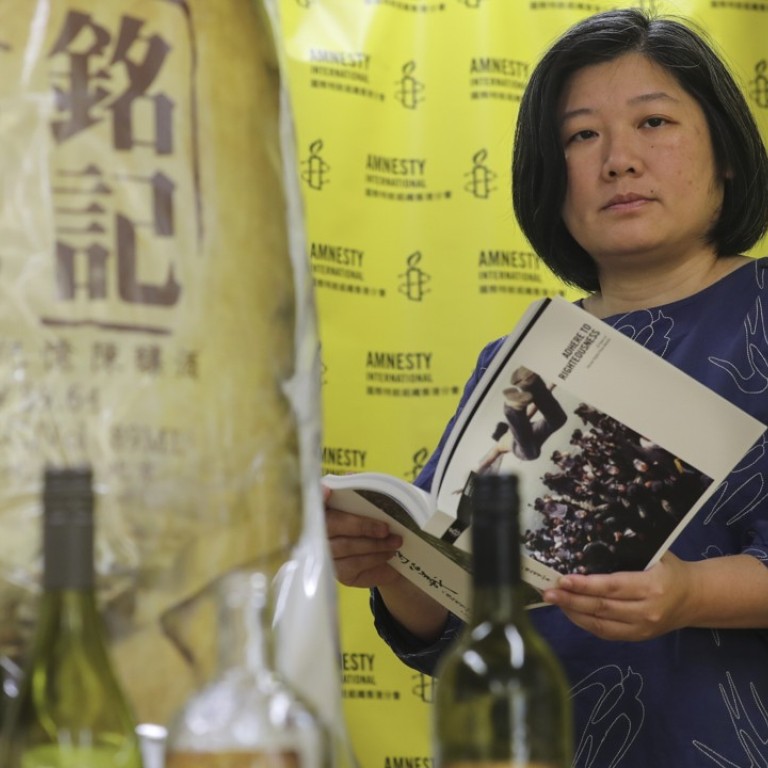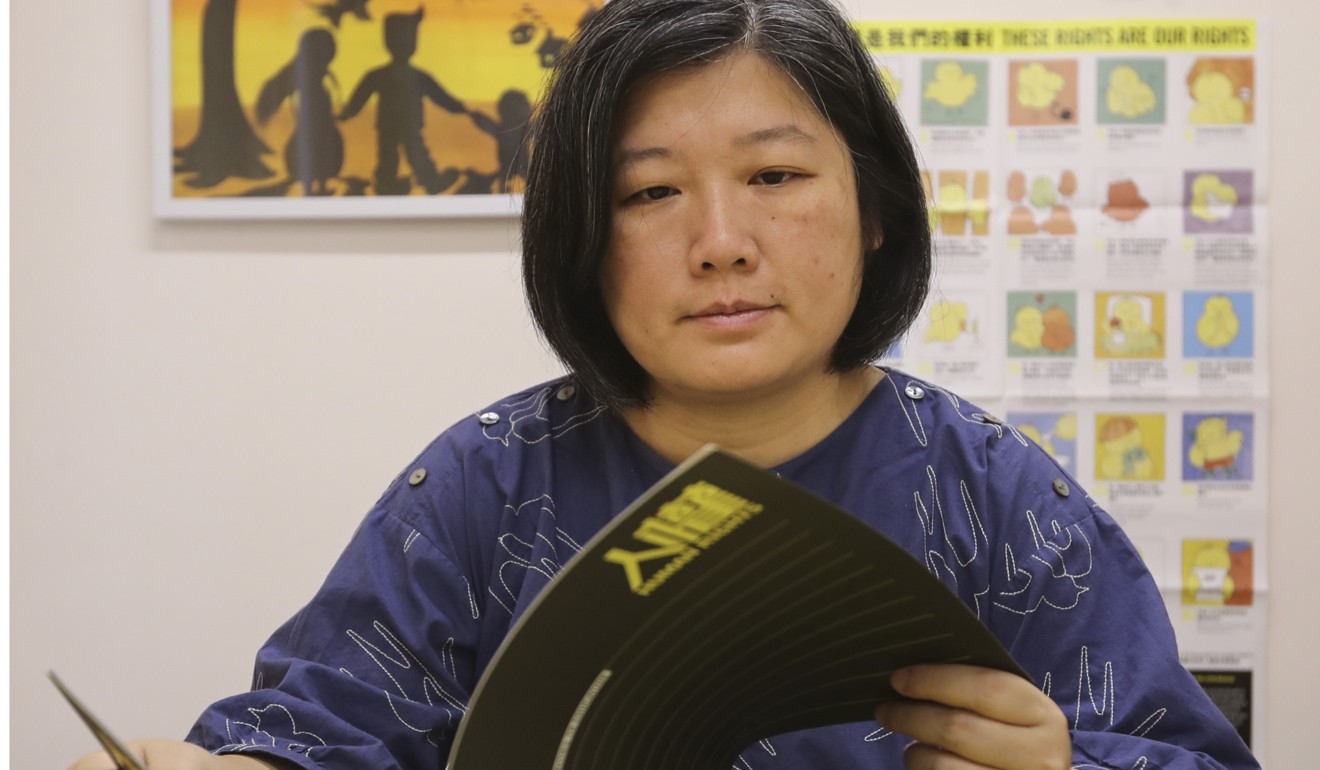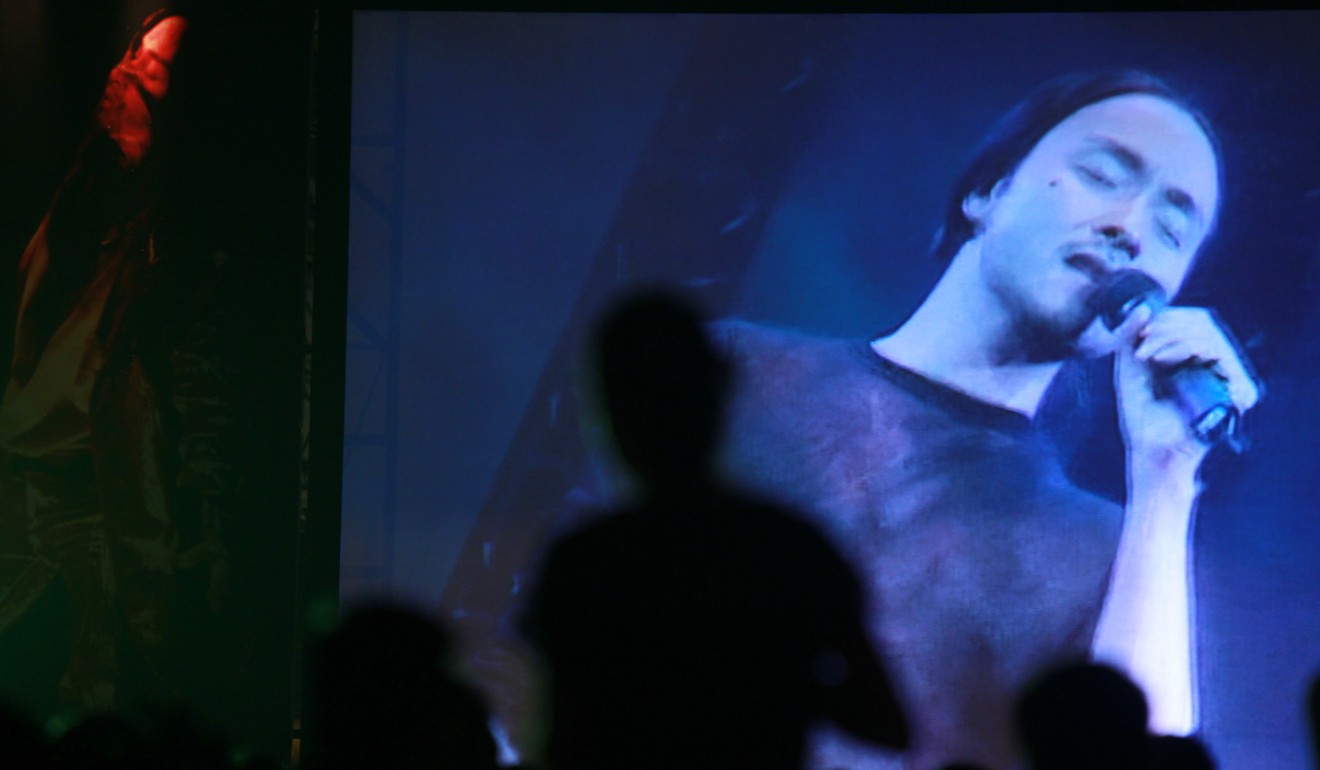
Never seen before: Amnesty chief laments Hong Kong’s ‘declining human rights record’
Lifelong Hongkonger Mabel Au expresses sadness over threats to free speech and abuse of asylum seekers and foreign domestic workers
Amnesty International Hong Kong’s report released in 2017 suggested human rights in the city were in rapid decline. Where are we experiencing the biggest problems? The first area we are very concerned about is freedom of expression, and this covers freedom of the press and freedom of assembly. We see journalists like former editor in chief of Ming Pao Kevin Lau Chun-to being attacked, and we don’t know what the intention is. When journalists are facing these kinds of attacks it is very serious, and we have never seen this in Hong Kong. The Hong Kong government does not facilitate the online media in covering the news, like at the Legislative Council elections they weren’t allowed to enter the ballot centre. This is very important because the press is always trying to disclose the truth and give the right information to the public, then we can decide if there’s any corruption or wrongdoing.
Last year with the Causeway Bay Books case, particularly with Lee Po, we can see he is not really free to talk. That kind of suppression, from Amnesty’s experience, happens very often in mainland China. This case sends a very negative message about the freedom of publication in Hong Kong.
Why do you think we are seeing this decline and why is it so worrying? We trust the system. We have very strong rule of law. Even though we are part of China, we have “one country, two systems”. If the rule of law is being threatened then that is a sign of decline. We demanded the government explain what is happening with the Causeway Bay booksellers case. We wrote to Leung Chun-ying about it and he never replied.
In the last few years, it has been very difficult to get a chance to directly talk to the government. There are a lot of situations where we try to have a discussion, and we provide information and analysis in the hope that they might adopt our suggestions. In the past, we may have had these chances, but not now. It is not a good sign – it is only through conversations that we can have change. In this city, society is not perfect, and if there are any areas that need improving, we give suggestions. But the government is not as friendly as before.
The increasing influence of mainland China is certainly a factor. This is about personal security. We have never seen this kind of situation before. We have a strong feeling this situation is declining.
What motivates you to fight for human rights in Hong Kong? From when we were young, we were taught that if you see anything unfair, you should be vocal. It’s very simple. I got that from my family and my education. I grew up in a generation when pop culture also had that message. People might say that Hongkongers are only looking for money in that it is a perfect capitalist society, but we treasure this belief in equality and truth. When you look back, you can see cases of corruption, civil servants abusing power, but when I was growing up I was told you have to be honest. You believe the whole society is an honest society. It is all those very basic values I learned when I was young. It made me believe I should work in human rights.

You criticised the government in April over their arrest of nine pro-democracy activists for what you described as “an orchestrated and retaliatory campaign by the authorities to punish those that advocate for democracy in Hong Kong”. How do you feel about the future of the pro-democracy movement in Hong Kong? I think it will be more challenging. There are many different opinions on different things. We need to uphold our belief that we should resolve all of this through communication. The umbrella movement protest in 2014 was the peak of different opinions. When it came to a conflict of opinions, it was a peaceful protest and they did not come with weapons to fight the police. We believe that at that time, it was a peaceful demonstration, and the government should handle the different opinions through dialogue. But unfortunately the police did not do that – they used tear gas. So these differences just went further, and it will only go further again. In the future it will be even more challenging. [Incoming chief executive] Carrie Lam suggested she wanted to bridge the gap, but shortly afterwards there were arrests. So it was like she had smashed what she had said.
You have also criticised suggestions by pro-establishment lawmakers to withdraw from the U.N. convention on torture. do you think there is a realistic chance this could happen? I personally question whether Leung Chun-ying understands the system. It is a United Nations convention and it is extended to Hong Kong and even mainland China. So the international community questioned China about what they had done and even they did not say they would withdraw. So what is the reason for Hong Kong to do so? If you want to withdraw, you have to inform the Chinese government and then they have to allow us to do it, and then we have to put up a law to do it. There is a series of procedures that you have to go through. Once you know that, you will know it is difficult. Why would you give up the space we have in this platform? Some other societies have no chance to participate.
The government talked about it in terms of refugees, but torture is not only about that. It relates to the police and prisons. It is about whether their policies and procedures adhere to international standards. You are telling society that ‘we will withdraw so there is no restriction on how we operate’, so then there is a risk to the rights of citizens.
How can the government improve the situation and rights for foreign domestic workers in the city? We have been thinking for a long time that regulating agencies is the first step.When migrant workers first come to Hong Kong, they find out for the first seven months they are in debt from the fees and can’t receive a salary. They are facing all kinds of abuses, which they do not dare to report. It is a very serious problem. Why can the recruitment agency charge such a fee? It then often leads to the worker using moneylenders, so he or she has a very big debt. We haven’t seen a very effective policy by the government to avoid this or stop this. When you come here and your travel documents are confiscated by the agency or employer, it is scary. When we did a report in 2013 about the situation of foreign domestic workers, that was an issue and we know it is still happening now. It is very doubtful whether the government knows what to do. There are definitely cases of forced labour and human trafficking and the government is just denying that. They have to recognise there is a need to look into the regulations. There are not enough at present to protect migrant workers.
what more can be done for asylum seekers, given the city’s acceptance rate for applications currently stands at 0.6 per cent? I don’t see any improvements at the moment. Increasingly we see how the government uses certain language to dilute their responsibility. Sometimes we find that in documents they interchange the term ‘asylum seeker’ with ‘illegal migrant’. None of the procedures are friendly to asylum seekers. Some asylum seekers ask us to help them provide human rights reports for their countries, such as the Philippines or Syria. It is not difficult for the Immigration Department to do that, but we end up doing it. We are also questioning the government about that.
Since you have been working with Amnesty, what are the most positive changes you have seen on how Hong Kong deals with human rights? As an organisation, we have done lots of human rights education. In the last few years, we haven’t been happy about the situation in Hong Kong, but at the same time we see people are conscious that human rights are important. We run training programmes for young people, such as a young reporter training scheme. Although the situation is not ideal, more and more people want to know about human rights.
How do you think incoming chief executive Carrie Lam Yuet-ngor might differ from her predecessor, Leung Chun-ying, on human rights? I don’t know, but knowing Carrie Lam from my experience as a Hong Kong person, I’m not sure there is a difference, but I hope there will be. We didn’t have many chances to see civil service directors in the last few years so I hope Carrie Lam can be different and listen to NGO suggestions and concerns. It is more of a hope than what I really know to be true.

QUIRKY QUESTIONS
What three things can you not live without?
Family and friends, freedom to express myself and love. I have experience working in other countries and I didn’t have family around me. If we did not have family and friends, life would be very dull. We are social creatures. And having the freedom to express and speak my mind is very important because throughout my grown-up period I learned about people who have died for the idea of freedom. No matter what type of rights you talk about, it is about freedom of speech. And love would not have appeared on my list two or three years ago, but now I realise you can’t have policy that works without empathy. People were more loving towards refugees, such as those from Vietnam, in the 1970s than they are now.
Which world leader in history, either alive or dead, do you most admire and why?
Mahatma Gandhi because he used a peaceful way to achieve his goal. That is very important. For whatever rights movement, it has to be a peaceful movement. If you give up peace, then I would question why you want to be an activist.
You studied film production at university. What’s your favourite film and why?
There is a Chinese film called Three Modern Women (1932), directed by Bu Wancang. The lead character is a clerk in a factory and she explains to her friends that she wants to go on strike in order to campaign for maternity leave. I noticed that the same slogan is used nowadays over maternity leave rights. It made me sad that there had been no change since then.
What’s your karaoke song of choice and why?
There is a great song by Canto-pop singer Leslie Cheung that translates in English as If You Know My Difficulties, in which he talks about being gay and the taboo surrounding that. I was very sad when he committed suicide. I could not believe it. I was in Thailand at the time and I thought people were joking because it was April 1.
Which part of your personality would you say defines you as a Hongkonger?
I’m quite direct. Because I work with people from different cultures, I know that other people speak more indirectly for fear of being blunt. There is generally not so much hierarchy here, so we can speak our mind.

